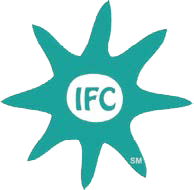The Commonwealth Fund’s annual ranking of healthcare performance in high-income countries has been released. The findings are not good. The U.S. ranked dead last in key categories, including access to care, administrative efficiency, health care outcomes, and importantly, care equity. Our healthcare system is due for a huge overhaul. A place to start is to acknowledge the huge role home-based care provided by family members plays in healthcare delivery. Unpaid, family-based care already accounts for over 70% of total care according to AARP. As baby boomers “age out” over the next couple of decades, home-based care is likely to increase, along with the number of family members providing that care.
Family caregivers have long been slighted and ignored anchors of our health care system. The pressures of caring for sick loved ones combined with the stress of navigating a user-unfriendly healthcare system take a severe toll on caregiver health. AARP also reports about 1 in 5 caregivers say that their own health declined as a result of the caregiving experience. Other research suggests that caregivers die at an alarmingly high rate—many passing before the person they take care of. That’s why IFC coined the mantra, “don’t lose two.” Most caregivers are thrown into the lion’s den of caring for a sick or dependent loved one without any preparation. This contributes to confusion that drives inefficiency, hampers access to care, and perpetuates inequity.
Fully and formally integrating family caregivers into health care delivery will be an important step toward correcting some of the system’s most persistent problems. Shifting to decentralized, home-centered care will also require a more culturally nuanced approach that learns from the widespread suspicion and hesitancy toward health care revealed during the Covid-19 pandemic. Most importantly, it is very clear that health care in the U.S. is first and foremost a business. Even with the developed world’s worst health care results, spending on U.S. health care is far greater than its peers. Tangible health care investments in minority communities, accelerated training of minority health specialists, growth among minority-owned healthcare enterprises, and improved minority health outcomes represent the true measure of progress in health equity.
-Harold
